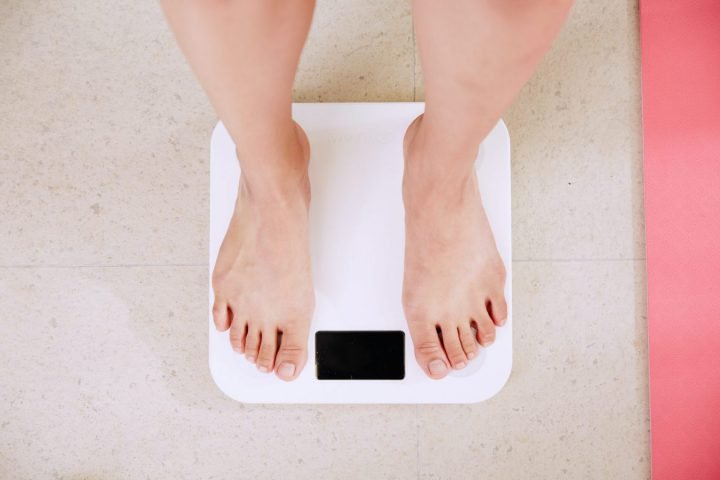COVID-19 has triggered my long-buried eating disorder
When I first moved in with my partner, I noticed an evil device lurking beneath his armoire.
“What’s wrong with owning a scale?” He had asked. To him, a digital scale was a fairly innocuous object.
I gave my best Marge Simpson grumble in reply. To me, a scale was a slippery slope to obsessive calorie counting, weight tracking and dysmorphia. But I hadn’t confronted any of those behaviours since my late teens. I was in a healthier place. I reasoned I could just ignore the scale. And the strategy worked. At least until COVID-19 hit.
While others coped with lockdown measures by rediscovering the joys of cooking, hoarding yeast and nurturing sourdough starters, I was in a battle of wills with my scale. Best as I tried to avoid it, it smouldered under the dresser, calling my name, begging me to step on it. When I relented, I was horrified by the number it spit back at me.
For much of my adult life, according to my yearly physicals, I’ve had a body mass index (BMI) in the low-normal range. More importantly, I was at a weight in which I felt comfortable in my skin. But, by May of this year, my exercise levels had plummeted, I was grazing on less-than-healthy snacks (so many Tater Tots), and had gained 11 pounds. I was frantic to avoid the COVID-15. I fasted, made my fairly restrictive diet even more so, and upped my exercise levels. As of writing, I’m down seven pounds, striving to lose that last four, and confronting habits I thought I had long buried.
If there’s any comfort I can find in this unpleasant development, it’s that I’m not alone. According to the American Psychological Association (APA), “The disruption of daily routines due to COVID-19 poses particular stressors for those with eating disorders or pursuing recovery.” In Canada, professionals who work with people with eating disorders are calling COVID-19 “the perfect storm.” The country’s National Eating Disorder Information Centre (NEDIC) has seen a 45 per cent increase in people reaching out to their helpline for support between March 1 to June 30, 2020, compared to the same time last year.
The ample pockets of digital culture promoting weight loss don’t help. From targeted Instagram ads for exercise regimes that promise to blast away my tummy fat, to BuzzFeed’s analysis of the thriving pro-eating disorder subculture on TikTok and Adele’s physical transformation, it’s difficult to escape messaging that tells me I should be spending this downtime sculpting my figure. Even in physical spaces, I can’t help but stray into dysmorphia. When I take to my balcony to vape, I glare at a woman who jogs by multiple times a day—a bronzed goddess with leg muscles so tight they pop as she puffs by. I expect she has her own twisted relationship with weight, but I can’t help but feel her perfect body is mocking mine.
Eating disorders come in many forms. Mine would best be categorized as a restrictive type of anorexia (limiting the type and quantity of food I eat), and the relationship between anorexia and feeling a loss of control can’t be underestimated. Christopher Freeman illustrates this correlation in his book, Overcoming Anorexia Nervosa.
“Often individuals vulnerable to [anorexia nervosa] are in circumstances where they feel trapped and under pressure to succeed; or they feel out of control in their lives,” he writes. “The reward they get from exerting control over their food intake and consequent weight becomes of exaggerated importance and may begin to dominate their existence.”
My relationship between food and control started innocently enough. When I was around three years old, my mother married my stepdad and gave birth to my brother. Seemingly overnight, everything in my world had changed. While I couldn’t control my mother’s choices, I could choose what did or didn’t go into my body. It tracks that during COVID-19, a time in which a fatal spectre hangs over all of us taking away any sense of power, that I’d need to find some semblance of control and that it would emerge through one of my most deeply-ingrained coping mechanisms.
This August, the Canadian Medical Journal, in partnership with Obesity Canada, released new guidelines for treating obesity in adults. Instead of focusing on counting calories, the model suggests a more holistic approach to weight loss, focusing on healthy eating and root causes of weight gain. Taking this news as encouragement, along with the guidance of my therapist, I pivoted from fasting and tracking to healthy meal planning. While I expect I’m not yet out of the danger zone when it comes to the state of the world triggering my less-than-desirable eating habits, I can be gentler with myself by understanding the relationship between eating disorders and control. We’re all in uncharted waters now. All we can do is our best.
